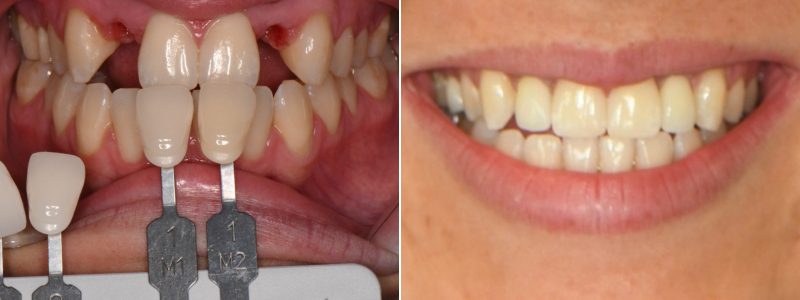Do you have missing teeth? Are you self-conscious about your smile? Ask Dr. Stefan Speck about dental implants at Oxford Family Dentistry in Oxford, PA. Dental implants are dental restorations that replace one or more missing teeth. Patients with single missing or lost teeth can receive single dental implants. If patients have rows or full arches of teeth missing, they can receive implant-secured dental bridges or dentures.

The Benefits of Dental Implants
Dental implants may be used to:
- Improve speech
- Prevent facial sagging
- Support gum and natural tooth health
- Bite and chew naturally
- Improve patient’s self-confidence
If you have one or more missing teeth and are interested in dental implant treatment, contact Dr. Speck for a dental consultation. He helps his patients find the right type of dental implant restoration for their restorative needs.
Dental Implant Treatment
To begin dental implant treatment, Dr. Speck takes digital x-rays and thoroughly examines the teeth and gums. He will determine if patients need additional treatments before dental implant treatment. If the remaining teeth and gums are healthy, and there is sufficient tissue in the jaw bone, Dr. Speck will take dental impressions of the teeth which are sent to a dental lab. These impressions are used to fabricate dental crowns, dentures, or dental bridges that will be secured by the dental implants.
Then, an oral surgeon surgically inserts the dental implants into the jawbone. During a process called osseointegration, the titanium implant posts fuse with the jaw bone tissue. After this 3 to 6 month process, the implant posts are capped off with an abutment and dental crown.

Implants Before & After
Dental Implant FAQs
Learn more about dental implants with answers to common questions about this restorative treatment:
Am I a candidate for dental implant treatment?
The best candidates for implant treatment are in good oral health and have sufficient bone tissue in the jaw. However, Dr. Speck will provide gum disease treatment or recommend bone grafting if needed. Patients will also need to keep up with their oral hygiene routine by brushing and flossing between their dental implants.
How long do dental implants last?
Due to their durability, dental implants are permanent restorations. As long as patients keep their dental implants and any of their remaining natural teeth clean, their implants or implant restorations will last many years.
Can dental implants “fail”?
Dental implants have a success rate of 90 to 95 percent. However, there are several factors that contribute to the rare cases of dental implant failure. Patients who smoke or use tobacco products have a higher chance of implant failure. This is because smoking restricts blood flow to the gums, making it difficult for the implants to heal properly. Certain medical conditions including diabetes and rheumatoid arthritis also slow the healing process.
The most common cause of implant failure is gum disease. Patients who develop an infection after their dental implant treatment will notice a change in their implants.
Can you get dental implants with receding gums?
Yes. It is possible to get tooth implants if you have receding gums. However, patients with receding gums may need to undergo a procedure known as gum grafting before getting their tooth implants. The gum grafting procedure will increase the amount of gum tissue that is available to attach to the tooth implant. If you are considering tooth implants, it is important to consult with a qualified oral surgeon to find out if you are a good candidate for this procedure.
Is a dental implant procedure painful?
The dental implant procedure is generally not painful. Your dentist will numb the area with a local anesthetic. However, some patients may experience discomfort and some pain following the surgery. Most patients find that the discomfort is manageable. Your dentist can be alleviate any pain and discomfort you experience with over-the-counter pain medications. Your dentist will provide you with detailed instructions on how to care for your tooth implants after the procedure. This will minimize any potential pain or discomfort.
Will my surgeon put me to sleep during my dental implant procedure?
Oral surgeons will perform the vast majority of tooth implant procedures with the patient under local anesthesia. This means that you will be awake, but the surgeon will numb the area around your teeth so that you won’t feel any pain. In some cases, your oral surgeon may use general anesthesia instead, which will put you to sleep. Your oral surgeon will only do this, however, if they need to place several or more tooth implants at once.
Restore Missing Teeth Today
Are you looking for a stable tooth restoration? Ask Dr. Speck about dental implant treatment today. Request a dental appointment with Dr. Speck on our website or call our office at 610.753.4506.
